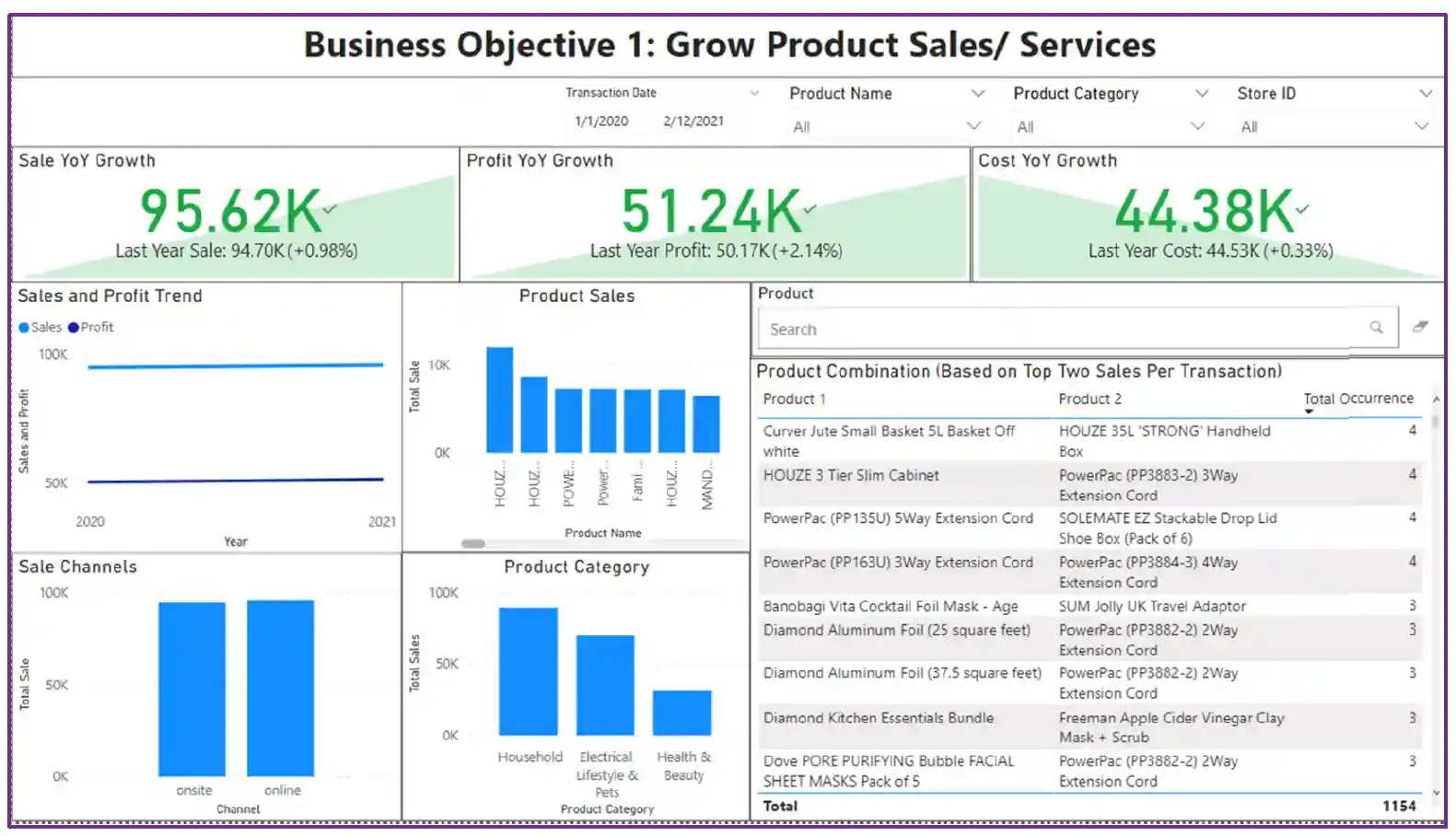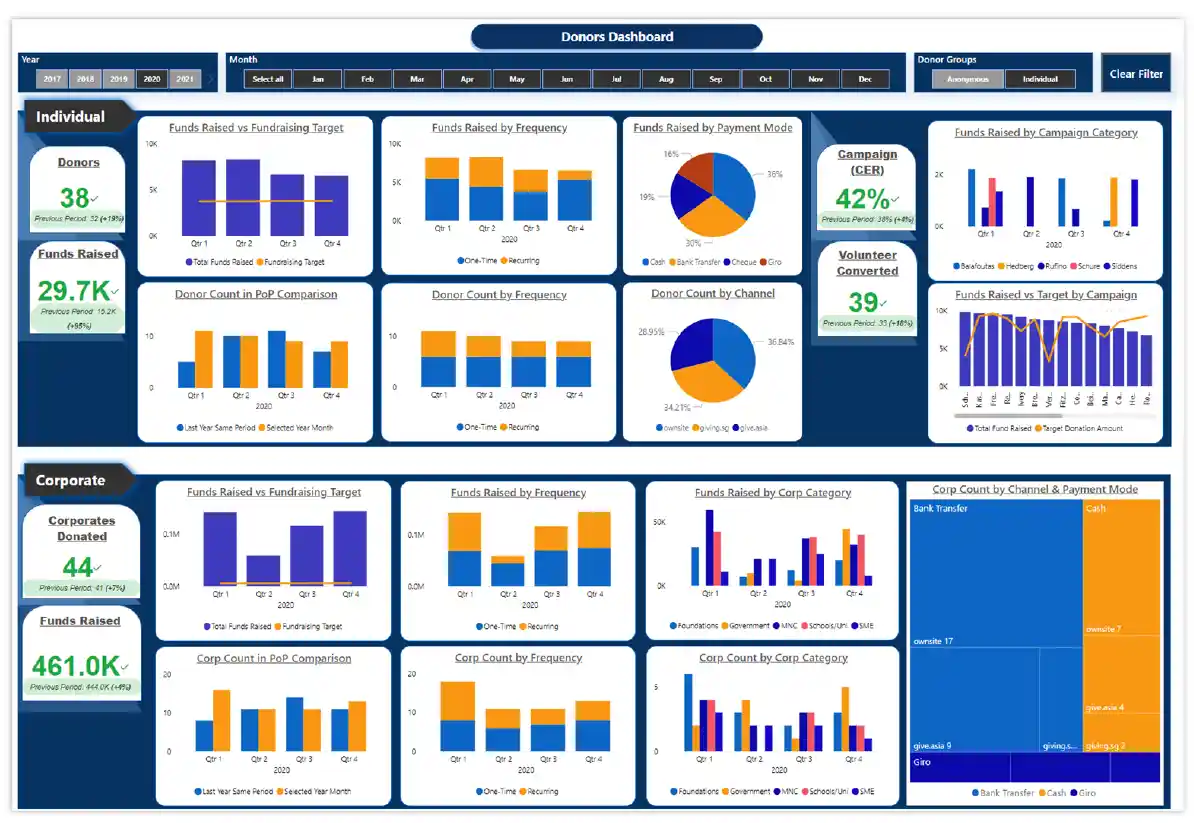Harnessing Data for Impactful Business Change
By improving data analytics capabilities, companies can make data-driven decisions that optimise processes and resource allocation to improve efficiency and profitability in an ever-evolving business landscape.
Data has revolutionised how companies must operate in today’s markets. As Singapore's digital economy grows, more businesses are harnessing data frequently to scale up and stay competitive.
However, the data landscape can be challenging for some—particularly small and medium enterprises (SMEs) who often face specific challenges and considerations when it comes to certain digital technologies. According to IMDA’s recent Singapore Digital Economy Report, while SMEs have seen an uptick in technologies like e-payment, its level of adoption for data analytics remains low at 12.5% in 2022.
In fact, IMDA’s Annual Survey on Infocomm Usage by Enterprises conducted in 2022 states that lack of skilled resources and the inability to extract and consolidate data from scattered sources are some of the main challenges faced by SMEs when using data analytics for their business needs.
What is Data Analytics?
Data analytics is the process of examining datasets to find trends and draw conclusions about the information they contain. Think of it as a form of business intelligence, used to solve specific problems and challenges within an organisation through finding patterns that can tell you more about a particular area of your business—for instance, how certain customer groups behave and spend.
Such limitations not only hamper the timely retrieval and accessibility of pertinent data but also obstruct a holistic and interconnected understanding of the insights needed to keep up with market trends and plan ahead of changing market conditions.
Greater insights about their customers can also help businesses optimise their performance by leaps and bounds—fortunately, such capabilities are not out of reach for SMEs.
Do Less, Achieve More with Data
Just capturing data, however, doesn’t necessarily result in better business decisions. SMEs need to recognise the importance of data quality and analysis to get the most out of the information they have. With IMDA's Better Data Driven Business (BDDB) programme, SMEs can learn to generate insights easily while ensuring adequate protection to safeguard their customers’ data. The BDDB looks to empower SMEs who are starting to use data to better analyse their datasets and generate insights with a free and easy-to-use business intelligence (BI) tool.
How does it work?
Following a systematic approach, the BI tool eases SMEs through the Data Analytics Life Cycle by covering the process of generating, collecting, processing, using and analysing data to achieve business objectives. Through automated dashboards, SMEs can easily convert their raw data into actionable insights in three easy steps:
|
STEP 1: Prepare and import required data into pre-defined template |
STEP 2: Interpret the results in the dashboard |
STEP 3:
Create an actionable plan |
To ensure SMEs’ needs were met, common business objectives were identified for both Business-to-Consumer and Business-to-Business models, with inputs from focus group discussions and surveys with SMEs:
|
Business-to-Consumer (Launched in Sep 2023) |
Business-to-Business (Launched in Jan 2024) |
|
|
Instead of starting from scratch, SMEs can use the BI tool to contextualise the data templates and dashboards according to their business needs to make more relevant decisions.
An example of how an automated dashboard looks like using the BI tool:

One example of successful use of the BI tool is Bee Cheng Hiang. The popular traditional food products company wanted to better understand how customers were shopping but its existing method of using Excel spreadsheets had limitations. By using the BI tool, Bee Cheng Hiang was able to easily figure out which products were frequently bought with others without much tinkering. It also allowed them to act quickly and overcome shortcomings using insights from data.
“IMDA’s BI tool came with templates and guidance on how it can be adopted, from data preparation, processing the data, to interpreting the dashboards. This was very helpful as we did not need to acquire deep technical knowledge to generate useful business insights.”
- Mr Tommy Koh, Chief Technology Officer, Bee Cheng Hiang.
How the social service sector makes a difference with data
When it comes to the need for data, the non-profit sector is no different from its for-profit counterparts. For Social Service Agencies (SSAs) who often collect data from their donors, service users and volunteers, a good grasp of data analytics is important for identifying trends, patterns and areas for improvement to help them maximise resources and achieve philanthropic goals to better help their communities. Yet, they too are often bogged down by resource constraints and operational issues.
Taking the lead, the National Council of Social Services (NCSS) initiated the development of the Better Data Driven Charities (BDDC) programme that emulates the existing BDDB programme and contextualises the data templates to better suit the needs of the social service sector.
"Data analytics has the power to transform the social service sector by providing insights that can inform decision-making, improve service delivery, and ultimately, enhance the lives of those we serve. With the right tools and expertise, we can unlock the full potential of data to create a more responsive and effective social service system." - Ms Jezlyn Wee, National Council of Social Services (NCSS).
To ensure SSAs’ actual needs were accurately addressed, the NCSS made efforts to work closely with their members to understand their data analytics and reporting needs, such as current gaps and tension points in collecting and using data, as well as the systems and tools commonly used.
For SSAs who had a different set of business objectives from for-profit SMEs, the BDDC looks at providing a specific set of easy-to-use data templates and dashboards that focus on four common objectives:
- Donation Management - Identify donor patterns/demographics to tailor marketing efforts
- Volunteer Management - Identify volunteer patterns and preferences to improve recruitment and retention
- HR Planning - Understand and analyse employee demographics to increase retention and improve workplace culture
- Case Management - Identify common themes to respond to emerging community needs proactively and improve workflows
Following the same data analytics life cycle, the BDDC’s automated dashboards work in three steps—data gathering, data validation, and dashboard creation and recommendations.
An example of how an automated dashboard via BDDC’s BI tool looks like:

Curious how other businesses have used data analytics to drive business growth?

Grand Hyatt Singapore: Driving a five-star experience with data
Data-driven customer insights have helped the hotel create luxury experiences that is tailored to each of their guests’ needs, improve on their customer service and resolve operational challenges.
Read more here.
|
Kearea: Critical customer insights drove business growth
As a unique platform selling modern gadgets and devices, the e-commerce company boosted sales through critical insights into their customer purchasing behaviour.
Read more here. |
The Great Detective: Optimising marketing and advertising efforts
Specialising in mystery games, riddles, and puzzles, the company kept customers coming back by using data analytics that helped them better understand their customers’ preferences.
Read more here. |
Data for All
Understanding and learning how to unlock the value of data will help foster a culture of data-driven decision-making for businesses, regardless of size or sector. However, it is also important to ensure no one is left behind in the digital race.
To start, SMEs can download the free BI tool from the BDDB website and import their business data to find out what are some of the insights they can get. Furthermore, SMEs can benefit from a series of complimentary workshops by IMDA and Microsoft Singapore on topics such as Data Analytics and AI over the next two years. To receive the latest updates on workshop offerings, register your interest here.
For the non-profit sector, the NCSS is also working with Nanyang Polytechnic (NYP) to provide training and consultancy support to SSAs. Find out more about it here.


